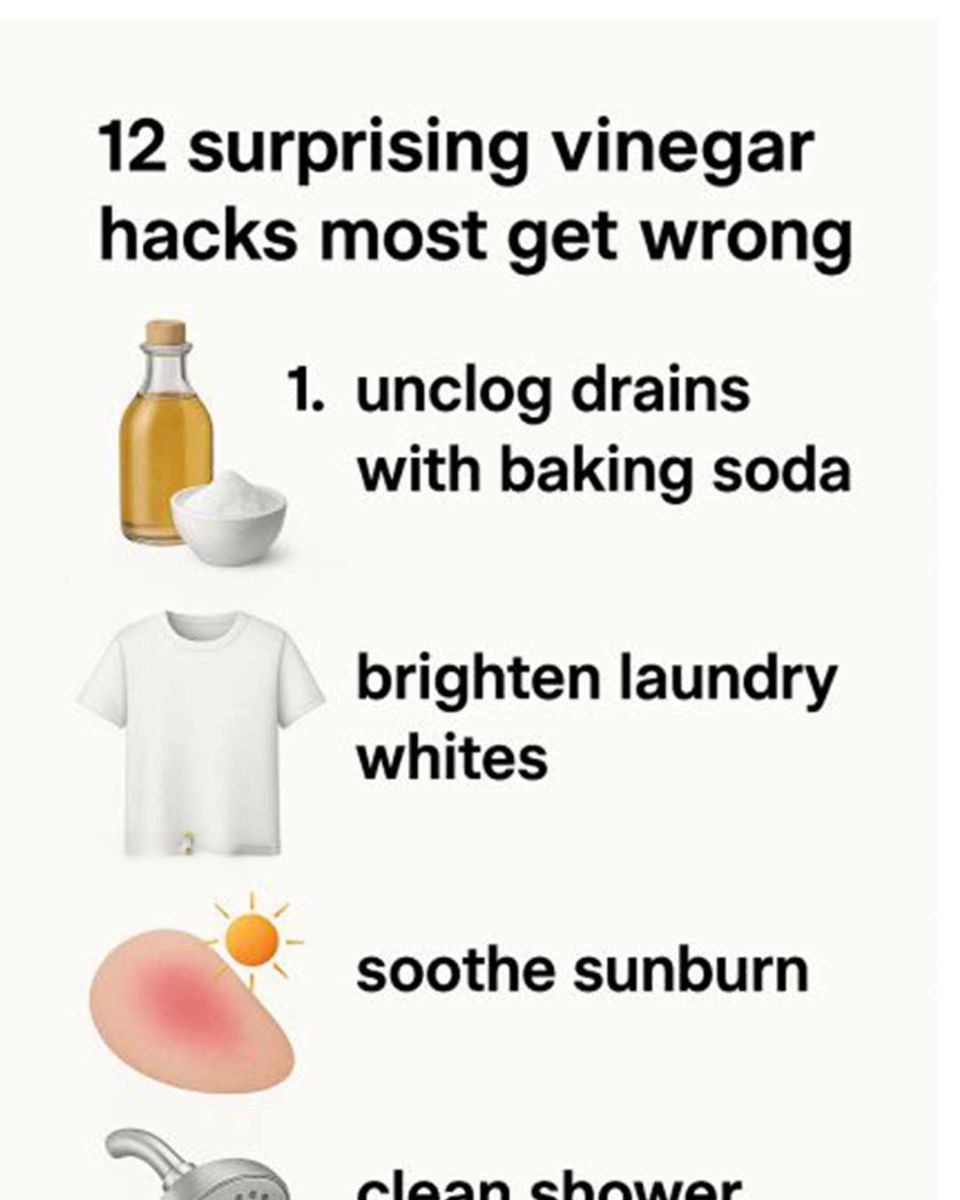Vinegar is often celebrated as a versatile household staple, praised for its ability to tackle a range of tasks from cleaning to cooking. However, there are many vinegar hacks that are commonly misunderstood or misapplied, leading to less than desirable results. While vinegar’s acidity makes it a powerful tool in some contexts, it can also cause damage or simply fall short of expectations if not used correctly.
In this article, we aim to clear up some of the confusion surrounding vinegar’s many uses. By dispelling myths and providing accurate guidance, we hope to help you harness the true potential of vinegar in your home, all while avoiding common pitfalls. Here are 12 surprising vinegar hacks that most people get wrong.
1. The Baking Soda and Vinegar Drain Unclogging Myth
The classic combination of baking soda and vinegar is often touted as a natural solution for unclogging drains. While the reaction between the two creates a satisfying fizz, it is not effective at dissolving hair, grease, or other common causes of clogs. The reaction produces water and carbon dioxide, which can help to dislodge minor blockages but lacks the strength needed for serious clogs.
Instead of relying solely on this mixture, it is better to use a mechanical method like a plunger or a plumber’s snake for stubborn clogs. For maintenance, you can pour half a cup of baking soda followed by a cup of vinegar down the drain once a month, but don’t expect it to work miracles on a major blockage.
2. Brightening Laundry Whites Without Causing Damage
Vinegar can indeed help to brighten white laundry and remove odors, but it must be used correctly to avoid potential damage. Add half a cup of white vinegar to the rinse cycle, not the wash cycle, to ensure it doesn’t interact with bleach or detergent, which can reduce its effectiveness.
This method is particularly useful for removing detergent residues and softening fabrics. However, avoid using vinegar on delicate fabrics or those with special finishes, as its acidity might cause damage or discoloration over time.
3. Soothe Sunburns with a Vinegar Soak
Using vinegar to soothe sunburns is a common suggestion, but it needs to be done carefully to prevent irritation. Dilute one part apple cider vinegar with four parts water, and gently apply to the affected area with a soft cloth or a spray bottle. This can help to cool the skin and reduce inflammation.
Avoid using undiluted vinegar, as its high acidity can further irritate sensitive sunburned skin. After application, be sure to moisturize the skin to prevent dryness and peeling.
4. The Proper Way to Clean Shower Heads with Vinegar
Vinegar is excellent for removing mineral deposits from shower heads, but it’s important to use it correctly. Fill a plastic bag with vinegar and secure it around the shower head with a rubber band, ensuring the entire head is submerged. Leave it to soak for a few hours, or overnight for more severe buildup.
After soaking, remove the bag and scrub the nozzles with an old toothbrush to remove any remaining deposits. Rinse thoroughly with water before using the shower. Avoid using vinegar on shower heads with plated finishes, as the acid can damage the coating.
5. Debunking Vinegar as a Miracle Weed Killer
Vinegar is often advertised as a natural herbicide, but its effectiveness can be limited. Household vinegar typically contains 5% acetic acid, which can kill small, young weeds on contact but is not strong enough to penetrate the roots of established weeds.
For a more effective natural weed killer, look for horticultural vinegar, which has a higher acetic acid concentration. However, exercise caution as it can also harm desirable plants and soil health if not used carefully. Always apply directly to the weeds and avoid over-spraying.
6. Using Vinegar as a Streak-Free Window Cleaner
Vinegar is an excellent choice for a streak-free window cleaning solution when used correctly. Mix one part vinegar with two parts water in a spray bottle. Apply to the glass surface and wipe with a lint-free cloth or newspaper for best results.
Avoid washing windows in direct sunlight, as the heat can cause the solution to dry too quickly, leading to streaks. For particularly dirty windows, pre-wash with soapy water to remove grime before applying the vinegar solution.
Next Page

